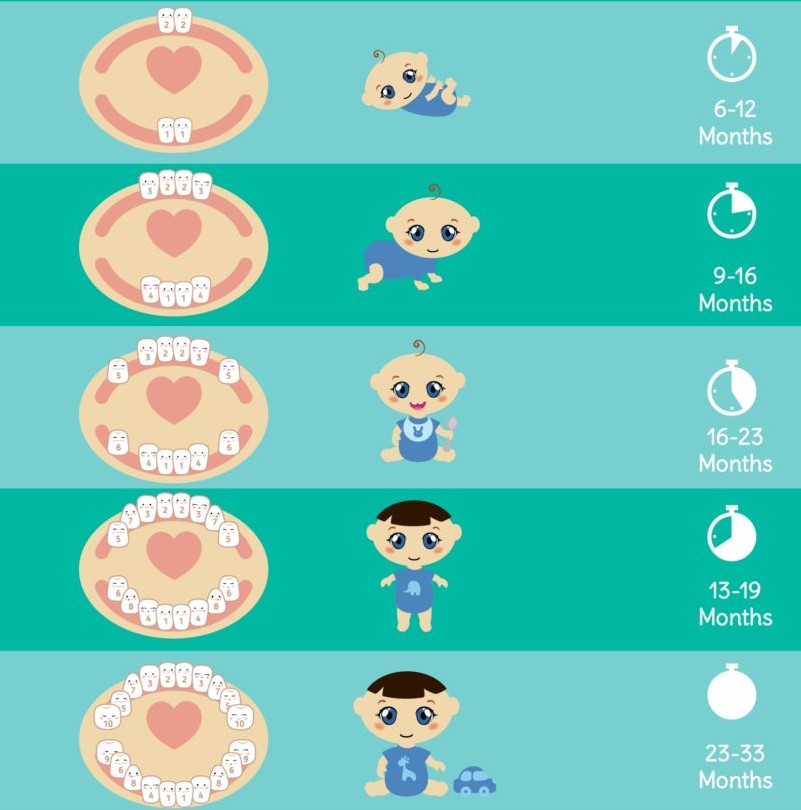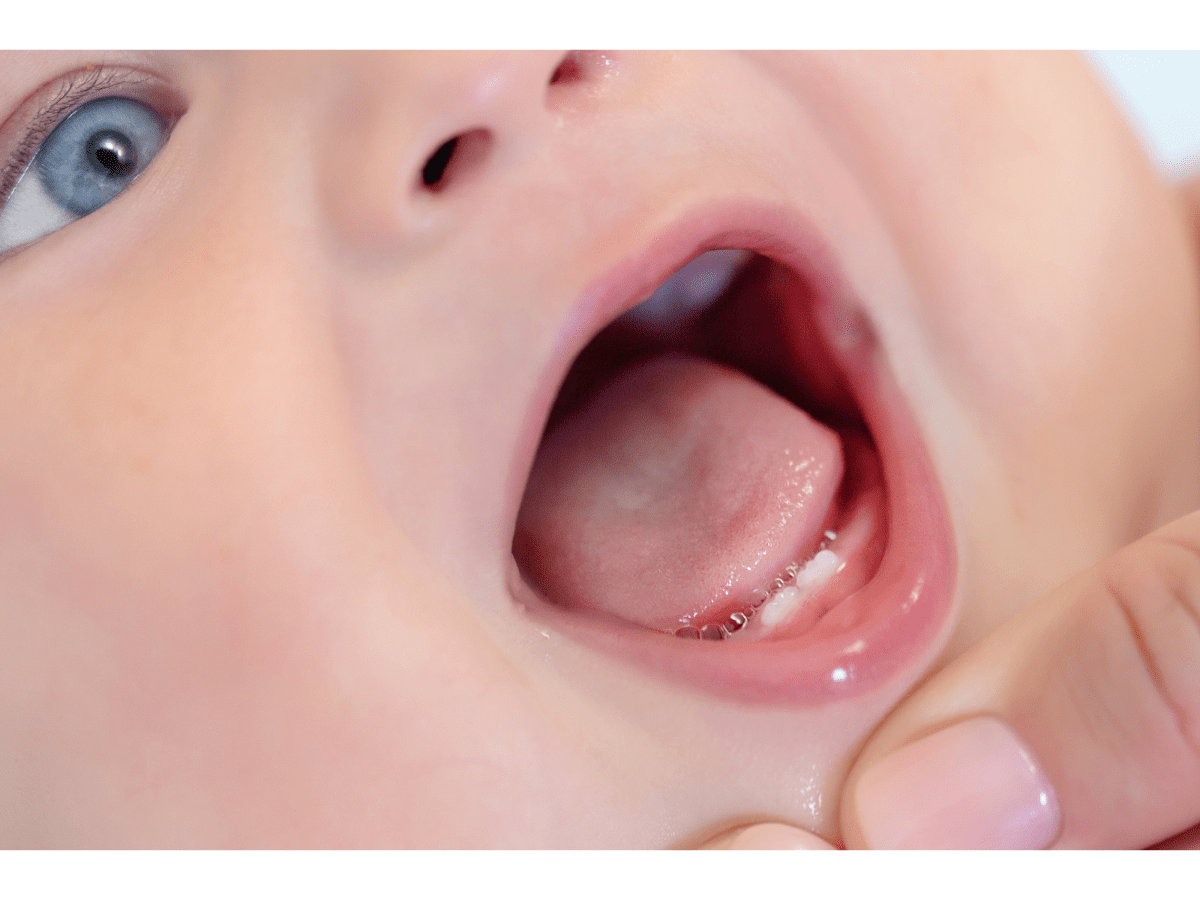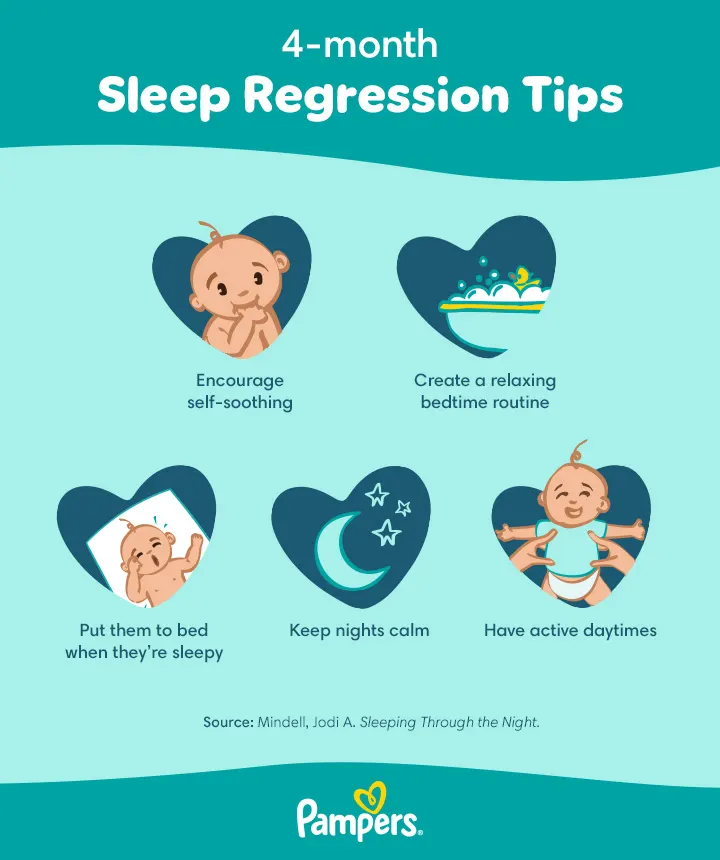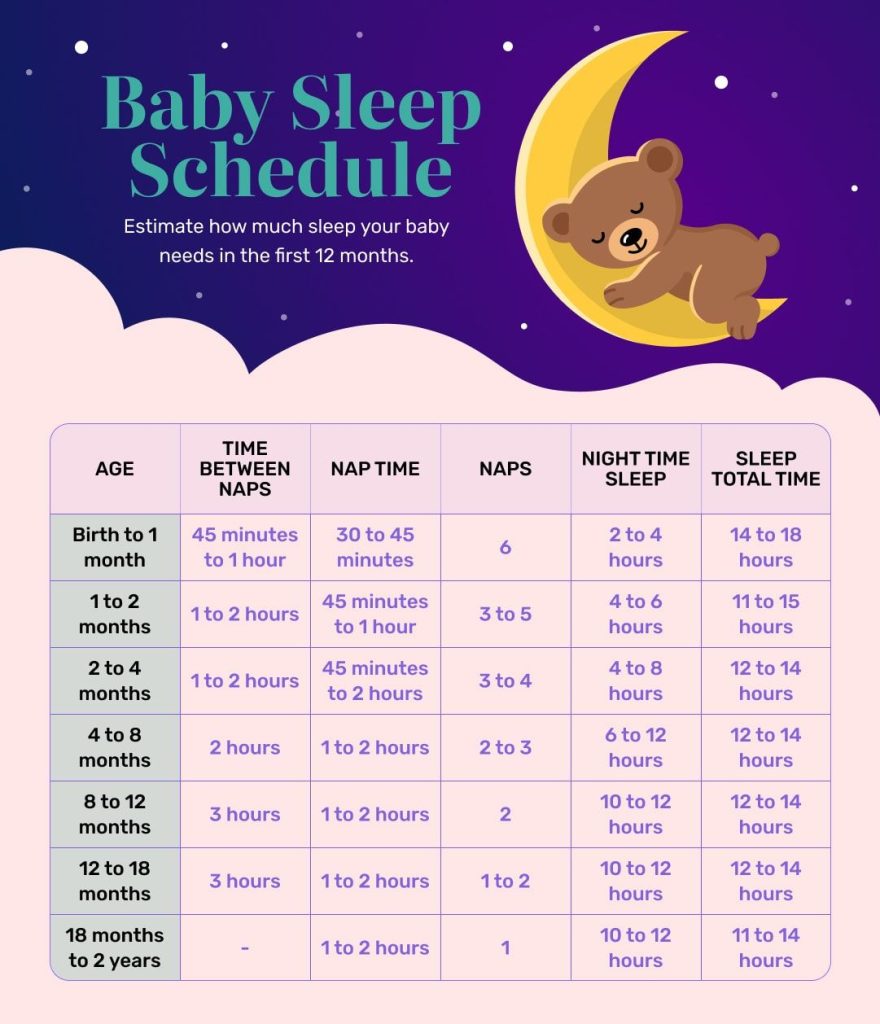Yes, teething can affect baby sleep. Babies may experience discomfort, leading to disrupted sleep patterns.
Teething is a natural process where a baby’s first teeth emerge through the gums. This usually begins around six months of age and can cause discomfort, irritation, and sometimes pain. As a result, many babies may struggle to sleep soundly during this period.
They might wake up more frequently at night or have difficulty falling asleep. Parents often notice increased fussiness and restlessness in their teething babies. Understanding the impact of teething on sleep can help parents provide comfort and care. Using gentle soothing techniques can make this developmental milestone easier for both babies and parents.

Credit: www.nestedbean.com
Teething And Sleep Disruption
Teething can be a challenging phase for both babies and parents. It often disrupts the baby’s sleep patterns. Understanding how teething affects sleep can help parents manage this tough period better.
Common Symptoms
Teething symptoms vary for each baby. Some common signs include:
- Drooling
- Gum swelling
- Irritability
- Chewing on objects
- Decreased appetite
- Interrupted sleep
Babies may also show signs of ear pulling. This can be mistaken for an ear infection.
Impact On Nighttime Rest
Teething can significantly impact nighttime rest. The pain and discomfort often increase at night. This can make it hard for babies to fall asleep.
Parents might notice their baby waking up frequently. Babies may cry more during the night. This can lead to sleep deprivation for both the baby and the parents.
Maintaining a consistent bedtime routine can help. Gentle gum massages or teething toys can provide some relief.
Table of common teething symptoms and their impact on sleep:
| Symptom | Impact on Sleep |
|---|---|
| Drooling | Discomfort, frequent waking |
| Gum swelling | Pain, difficulty falling asleep |
| Irritability | Restlessness, interrupted sleep |
| Chewing on objects | Temporary relief, easier to sleep |
| Decreased appetite | Hunger, waking up for feeds |
Understanding these symptoms and their effects can help parents better manage their baby’s sleep during teething.

Credit: www.weebeedreaming.com
Recognizing Teething Signs
Teething can disrupt your baby’s sleep. Understanding the signs can help parents manage this phase better. Recognizing these signs early can make a significant difference in ensuring both you and your baby get enough rest.
Drooling And Chewing
One of the first signs of teething is excessive drooling. Your baby might drool more than usual. This can cause their clothes to get wet quickly. Keep a bib handy to keep your baby dry.
Babies also tend to chew on everything. This is because chewing helps soothe their gums. Offer your baby safe teething toys to chew on. This can provide some relief.
Irritability And Crying
Irritability is another common sign of teething. Your baby might seem fussier than usual. They may have trouble settling down for naps or bedtime. This is due to the discomfort from their gums.
Teething can also cause more frequent crying. The pain from the emerging teeth can be intense. Comfort your baby with gentle rocking or soft singing. This can help calm them down.
| Teething Sign | Description |
|---|---|
| Drooling | Excessive saliva production |
| Chewing | Need to gnaw on objects |
| Irritability | Increased fussiness |
| Crying | Frequent crying spells |
By recognizing these signs, you can take steps to ease your baby’s discomfort. This can lead to better sleep for both of you.
Teething Timeline
Understanding the teething timeline can help you manage your baby’s sleep. Teething can disrupt sleep patterns and make nights challenging. Knowing the age milestones and order of tooth emergence provides clarity.
Age Milestones
Teething usually starts around six months. Some babies may start earlier or later. Here’s a general timeline:
| Age (Months) | Teething Milestone |
|---|---|
| 4-7 | First teeth (lower central incisors) |
| 8-12 | Upper central incisors |
| 9-16 | Upper and lower lateral incisors |
| 13-19 | First molars |
| 16-23 | Canines |
| 23-33 | Second molars |
Order Of Tooth Emergence
Teeth appear in a predictable order. This pattern helps you know what to expect:
- Lower central incisors: These are the first to come in.
- Upper central incisors: Next, the top front teeth emerge.
- Upper lateral incisors: These teeth come next to the top front teeth.
- Lower lateral incisors: These appear beside the lower front teeth.
- First molars: These are the first set of molars to emerge.
- Canines: Also known as cuspids, these come next.
- Second molars: These are the last to come in.
Knowing these milestones and the order helps you anticipate teething phases. This can make managing your baby’s sleep easier.

Credit: www.babysleepmadesimple.com
Effective Soothing Techniques
Teething can disrupt your baby’s sleep. Understanding effective soothing techniques can help. Here, we cover two key methods: cold compresses and teething toys.
Cold Compresses
A cold compress can ease teething pain. The cold numbs the gums and reduces inflammation.
- Wrap an ice cube in a soft cloth.
- Gently press it on your baby’s gums.
- Use a chilled spoon for a quick solution.
Always supervise your baby during this process. Ensure the compress is not too cold. It should be comfortable for your baby.
Teething Toys
Teething toys are designed to soothe your baby’s gums. Choose toys made of safe materials.
- Silicone teething rings are soft and soothing.
- Wooden teething toys are natural and durable.
- Teething necklaces for moms can be convenient.
| Type of Teething Toy | Material |
|---|---|
| Silicone Ring | Silicone |
| Wooden Toy | Wood |
| Teething Necklace | Silicone |
Ensure toys are clean and free from small parts. This prevents choking hazards.
By using these techniques, you can help ease your baby’s discomfort. This can lead to better sleep for your little one.
Pain Relief Options
Teething can be a challenging phase for both babies and parents. One of the biggest concerns is how teething affects baby sleep. Fortunately, there are several pain relief options available to help soothe your baby.
Over-the-counter Remedies
Over-the-counter remedies can provide quick relief for teething pain. These include:
- Teething Gels: These gels contain mild anesthetics to numb the gums.
- Infant Pain Relievers: Medicines like acetaminophen or ibuprofen can reduce pain and fever. Always follow the dosage instructions.
- Teething Tablets: These are dissolvable tablets designed to relieve teething discomfort.
Natural Alternatives
Many parents prefer natural alternatives to soothe their teething baby. These options include:
- Cold Washcloth: Freeze a damp washcloth and let the baby chew on it.
- Teething Rings: Chilled teething rings can help reduce gum pain.
- Chamomile Tea: Chamomile tea can be used to calm your baby. Soak a washcloth in chamomile tea and let your baby chew on it.
- Amber Teething Necklaces: Some parents use amber necklaces to reduce teething pain. Always supervise your baby while using these.
Both over-the-counter remedies and natural alternatives can provide effective relief. Understanding these options can help you choose the best method for your baby.
Creating A Calm Sleep Environment
Teething can be a challenging time for both babies and parents. One of the most effective ways to help your teething baby sleep better is by creating a calm sleep environment. This can make a significant difference in how well your baby rests during this difficult phase.
Optimal Room Temperature
Maintaining the optimal room temperature is crucial for your baby’s sleep. The ideal temperature range is between 68-72°F (20-22°C). Ensure the room is neither too hot nor too cold. Use a room thermometer for accurate readings.
Dress your baby in light, breathable clothing. Layering can help you adjust to temperature changes. Avoid heavy blankets or overdressing, which can cause overheating. A sleep sack can provide comfort without the risk of loose bedding.
White Noise Machines
A white noise machine can be a game-changer for baby sleep. These machines produce soothing sounds that can mask other noises. This creates a consistent sleep environment.
Choose a white noise machine with adjustable volume levels. Place it across the room from the crib. This ensures the sound is effective but not too loud.
Some white noise machines offer nature sounds or lullabies. Experiment with different sounds to find what soothes your baby the best.
| Feature | Benefit |
|---|---|
| Adjustable Volume | Customizable for your baby’s needs |
| Nature Sounds | Offers a variety of calming options |
| Portable | Easy to use while traveling |
Consistency is key. Use the white noise machine every night to build a routine. This helps your baby associate the sound with sleep time.
Establishing A Bedtime Routine
Teething can disrupt your baby’s sleep. Establishing a bedtime routine helps. A consistent routine makes bedtime smoother and more predictable.
Consistent Schedule
A consistent schedule is crucial for your baby’s sleep. Set a fixed time for bed every night. Your baby will learn when it’s time to sleep.
Follow a simple plan:
- Set the same bedtime each night
- Keep wake-up times consistent
- Limit naps to the same times daily
Consistency helps in regulating your baby’s internal clock. This helps them fall asleep easier.
Relaxing Activities
Before bedtime, engage in relaxing activities. These activities signal that it’s time to wind down.
Try these calming activities:
| Activity | Benefit |
|---|---|
| Warm Bath | Soothes the body |
| Reading a Story | Calms the mind |
| Gentle Rocking | Relaxes the baby |
These activities help your baby relax. They prepare them for a good night’s sleep.
When To Consult A Pediatrician
Teething can be a challenging time for both babies and parents. It’s natural to worry about your baby’s sleep during this period. Knowing when to consult a pediatrician can be crucial for your baby’s health and your peace of mind.
Persistent Sleep Issues
If your baby struggles with sleep for more than a week, it might be time to seek help. Babies need a lot of rest to grow and develop. Missing sleep can affect their mood and health. Watch for signs like constant waking, trouble falling asleep, or frequent crying at night.
Keeping a sleep diary can help. Note down your baby’s sleep patterns and any changes. This information can be useful for your pediatrician. Here are some signs of persistent sleep issues:
- Waking up multiple times a night
- Taking more than 30 minutes to fall asleep
- Crying for long periods before sleeping
Signs Of Infection
Teething can sometimes cause symptoms that mimic an infection. It’s important to know the difference. If your baby has a high fever, swollen gums, or diarrhea, these might be signs of an infection.
Check for any unusual symptoms like a rash, ear tugging, or pus around the gums. These could indicate an infection that needs medical attention. Here’s a quick guide to signs of infection:
| Symptom | Possible Infection |
|---|---|
| High Fever | Viral or bacterial infection |
| Swollen Gums | Gum infection |
| Diarrhea | Stomach infection |
| Rash | Allergic reaction or infection |
Consult a pediatrician if you notice these signs. Early intervention can prevent complications and ease your baby’s discomfort.
Frequently Asked Questions
Can Teething Cause A Baby Not To Sleep?
Yes, teething can disrupt a baby’s sleep. The discomfort and pain from teething may cause restlessness and wakefulness. Ensure comfort for better sleep.
How Long Does It Take For Teething To Disrupt Sleep?
Teething can disrupt sleep for a few days to several weeks. Each child experiences teething differently. Consistent sleep patterns usually return once teething subsides.
How To Know If Baby Is Teething At Night?
Check for signs like drooling, irritability, swollen gums, and frequent waking. Baby may also chew on objects.
How To Help A Teething Baby In The Night?
Gently massage the baby’s gums with a clean finger. Offer a cold teething ring or a chilled washcloth. Ensure the baby is comfortable and calm. Use over-the-counter pain relief if necessary, after consulting a pediatrician. Maintain a soothing bedtime routine to help the baby sleep better.
Can Teething Disrupt A Baby’s Sleep?
Yes, teething can cause discomfort and pain, leading to disrupted sleep patterns for your baby.
Conclusion
Teething can significantly impact your baby’s sleep patterns. Understanding the signs and providing comfort can help. Patience and consistency are key. Try soothing techniques like a cool teething ring. Always consult your pediatrician for persistent sleep issues. This phase will pass, leading to better sleep for both baby and parents.


